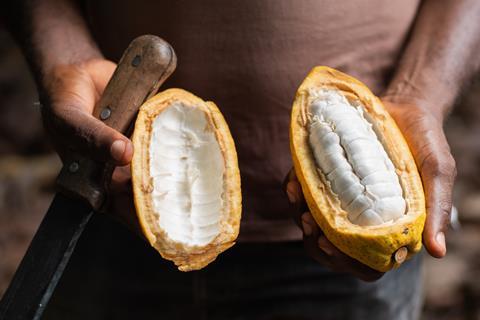
Ghana is expected to raise its cocoa farmgate prices for the next season, with sources pointing to an increase of anywhere between 45% and 70% on last year’s prices.
The world’s second-largest cocoa producer is set to announce its 2024/25 farmgate prices “likely before the end of the week”, one source close to government negotiations told The Grocer.
A Reuters report earlier this week claimed the state-guaranteed price paid to its cocoa farmers was going to be increased by nearly 45%, citing two sources with knowledge of the price review.
But estimates from the Ghana Civil Society Cocoa Platforms (GCSCP) released two days ago pointed to a 65%-70% increment in the farmgate price of cocoa for the 2024/2025 season, which is set to begin in late September and early October.
“With the understanding that most contracts for the 2024/2025 harvest were entered based on 2023/2024 market prices, which averaged around $6,104.33 per tonne throughout the season, and with the working assumption that farmers shall receive minimum 60% of gross Free on Board (FoB) price, we expect that the farmgate price should be set at a minimum of $3,662.60 per tonne,” the GCSCP said.
“Depending on the exchange rate applied, the minimum farmgate price per tonne of cocoa beans for the 2024/2025 cocoa season must not be less than GH57,320 (using an exchange rate of $1:GH15.65) which should translate to minimum GH3,583 per bag (64kg) of cocoa beans.”
Read more: Cadbury Dairy Milk prices rise due to cocoa costing ‘far more’
However, sources stressed the decision was not official yet as the Producer Price Review Committee had not completed its work and Cocobod – Ghana’s cocoa marketing board responsible for setting the prices – needed to await governmental approval.
Ghana raised the cocoa farmgate price by more than 58% to 33,120 cedi ($2,123.08) per tonne – or 2,070 cedi per 64kg – in April for the rest of the 2023/24 season, partly in a bid to stop bean smuggling out of the country as farmers looked for better prices in neighbouring countries such as the Ivory Coast.
Cocoa farmers have been under immense pressure in the past couple of years as the effects of climate change and disease have significantly affected output.
The supply squeeze has pushed commodity prices to unprecedented levels, reaching a record high of $12,261 per tonne in April 2024.
These cost increases have made their way down the supply chain, with chocolate prices in the UK increasing by as much as 19% this year.
However, the GCSCP argued that those price hikes had not always benefited farmers as farmgate prices remained relatively low.
“Unfortunately, Ghanaian farmers did not significantly benefit from these price hikes due to long-standing cocoa marketing strategy adopted by Ghana Cocoa Board – that overly focus on forward sales of beans as against spot sales – which could have ensured that farmers benefited more from the price hikes,” it said in its 2 September statement.
Read more: Lindt warns of further price hikes as cost of cocoa remains at record heights
“It is crucial that pricing strategies and support systems be realigned to ensure that farmers are fairly compensated for their hard work.
“To ensure that the Ghanaian cocoa farmer remains motivated and competitive in the sub-region, we propose that government institutionalise the upward mid-term revision of farmgate prices due to the volatile nature of our currency and to also minimise cross-border smuggling of cocoa beans mid-season.”
Cocobod previously planned to launch the 2024/25 season on 1 September, but it has now been pushed back.
The International Cocoa Organization last week raised its global cocoa deficit forecast for the 2023/24 season (October-September) to 462,000 tonnes from 439,000 tonnes, warning the market was headed for a 45-year low stocks-to-grindings ratio.
GCSCP said Ghana was set to experience its lowest cocoa output in over two decades, comparable only to the 2002/2003 cocoa season.










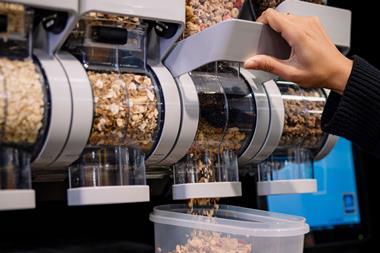

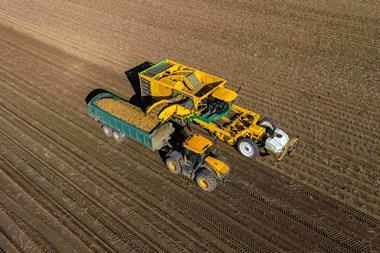


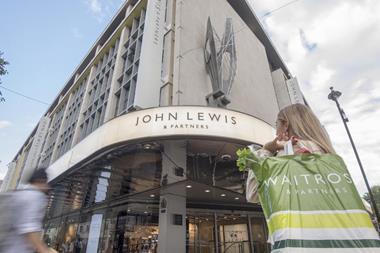


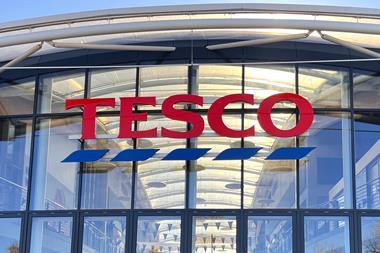
No comments yet